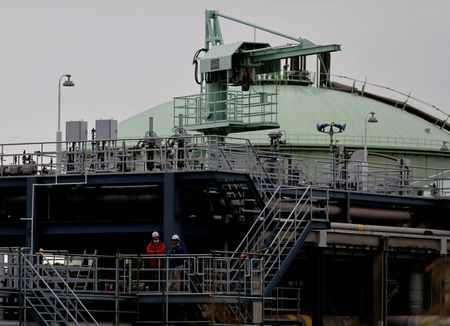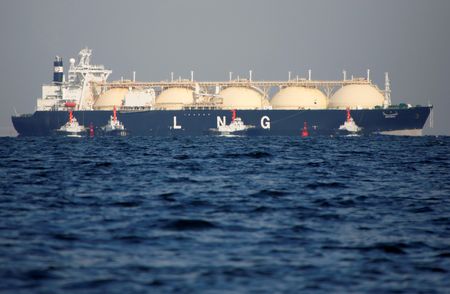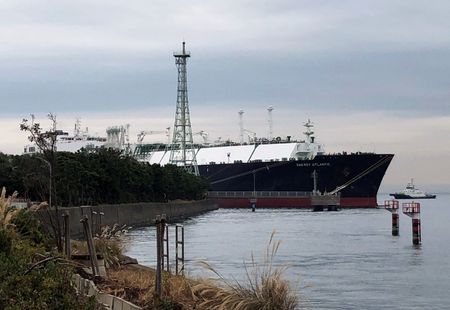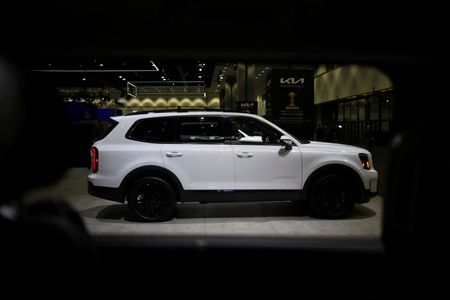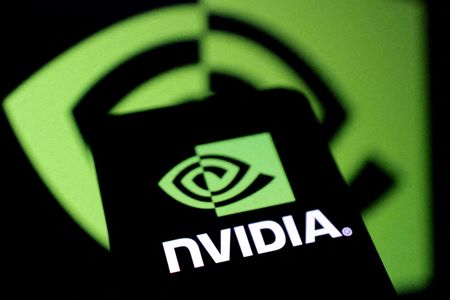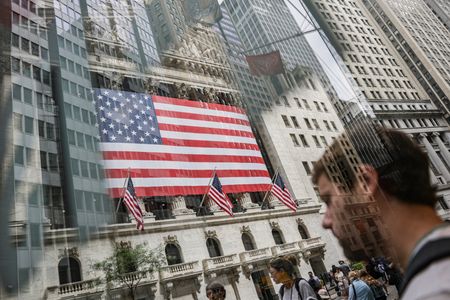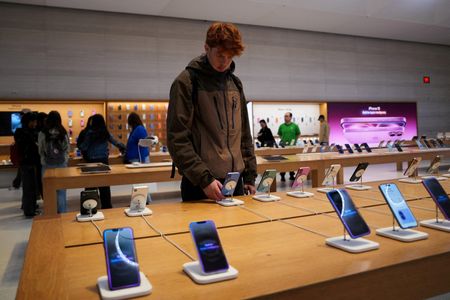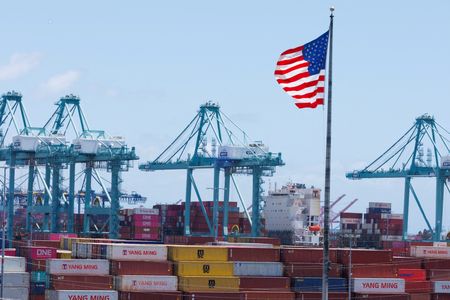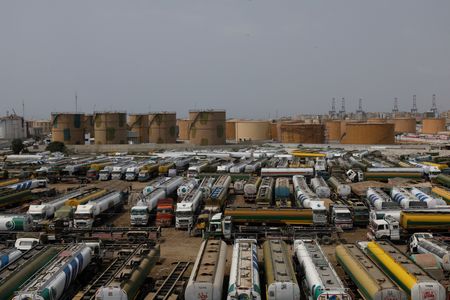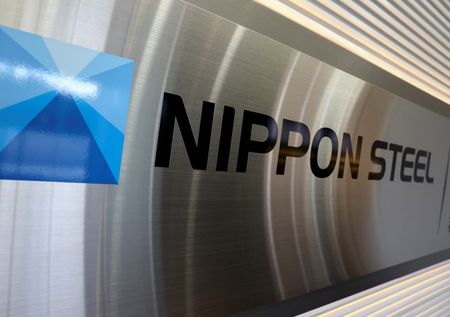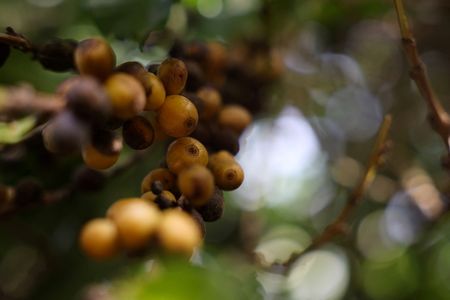By Katya Golubkova, Yuka Obayashi and Emily Chow
TOKYO/SINGAPORE (Reuters) – Gas importers in Japan are watching nervously as Australia heads to the polls on May 3 in a closely contested election, worried that whatever the outcome, their long-time supplier of liquefied natural gas could become less reliable and more costly.
Energy has emerged as a major campaign issue in Australia, the world’s second largest LNG exporter and Japan’s top supplier, facing a gas supply crunch in its east coast market and struggling with rising electricity prices.
A widely watched poll has shown the ruling Labor party could retain power with a slim majority. The election could also deliver a hung parliament, with Labor likely forming a minority government.
An alliance with the Greens or environment-focused independent candidates could result in a bigger push for renewable energy and less favourable policies to the gas industry.
Japanese firms are not only major buyers of Australian LNG but also own stakes in LNG projects, with the biggest investment by Inpex, which runs Ichthys LNG in Darwin. JERA last year bought a 15% stake in the Scarborough LNG project being developed by Woodside Energy off Western Australia.
The companies have been rattled by policies implemented by the Labor government, including an extension of gas export controls after energy prices surged following the Ukraine war, and rules requiring big polluters to cut emissions sharply.
Those policies have raised supply uncertainty and hiked costs at LNG facilities, Japanese players say.
“We recognise their efforts to issue the new gas strategy. But at the same time … nothing in terms of actions was taken to mitigate the legitimate concerns of the Japanese importers, which is not very helpful for the future in deciding from where we will be purchasing LNG,” said Tatsuya Terazawa, chairman and CEO of The Institute of Energy Economics, Japan (IEEJ), an influential energy policy think-tank.
The Labor government “has acted to secure gas for domestic users, while remaining a reliable and trusted energy exporter,” a government spokesperson said.
Adding to LNG buyers’ concerns, Australia’s opposition Liberal-National coalition has pledged to force east coast exporters to direct some uncontracted gas to the domestic market.
Two traders from Japanese importers said this would mean less LNG for export, possibly driving up prices for new term-deals. They declined to be identified as they were not authorised to speak to the media.
It could also affect buyer-seller relationships if producers cannot fulfil contractual obligations due to a domestic supply shortage, the traders said. The conservative coalition has said its gas policy would not affect existing contracted volumes.
It sees the east coast gas reservation as necessary, because although Australia exports much more gas than it consumes, most of its production is in the northwest, far from the southeast where demand is highest.
JAPAN TO DIVERSIFY
Of Australia’s total LNG exports of 81 million metric tons in 2024, over a third was shipped to Japan, according to Kpler data, making up about 40% of Japan’s LNG imports.
To reduce offtake risks, Japanese buyers say they may turn more to other suppliers.
For JERA, Japan’s biggest buyer of Australian LNG, it would make sense to diversify “to ‘even out’ risk and to achieve its overriding goal of reliable, affordable and secure energy supplies,” the company said in a LinkedIn post, citing a speech in Perth last month by its senior vice president of LNG, Hitoshi Nishizawa.
He urged Australia to make its LNG “more competitive”, JERA said, adding that the U.S. would have “abundant and cheaper LNG” in the mid-2030s, when some key contracts to buy Australian LNG are set to expire.
Chugoku Electric Power President Kengo Nakagawa told reporters on Friday he would like the next Australian government to ensure stable energy supply and avoid sudden policy changes.
Inpex declined to comment on Australian regulations ahead of the election.
The poll comes amid a push by U.S. President Donald Trump for Japan to buy more U.S. gas, including from a proposed project in Alaska, while threatening trade tariffs.
IEEJ’s Terazawa said countries such as the U.S., Canada and Qatar offer alternatives for Japan to meet its LNG demand. “We love Australia and its LNG, but there are other competitors.”
(Reporting by Katya Golubkova and Yuka Obayashi in Tokyo, Emily Chow in Singapore and Christine Chen in Sydney; additional reporting by Marwa Rashad in London; Editing by Florence Tan and Sonali Paul)

